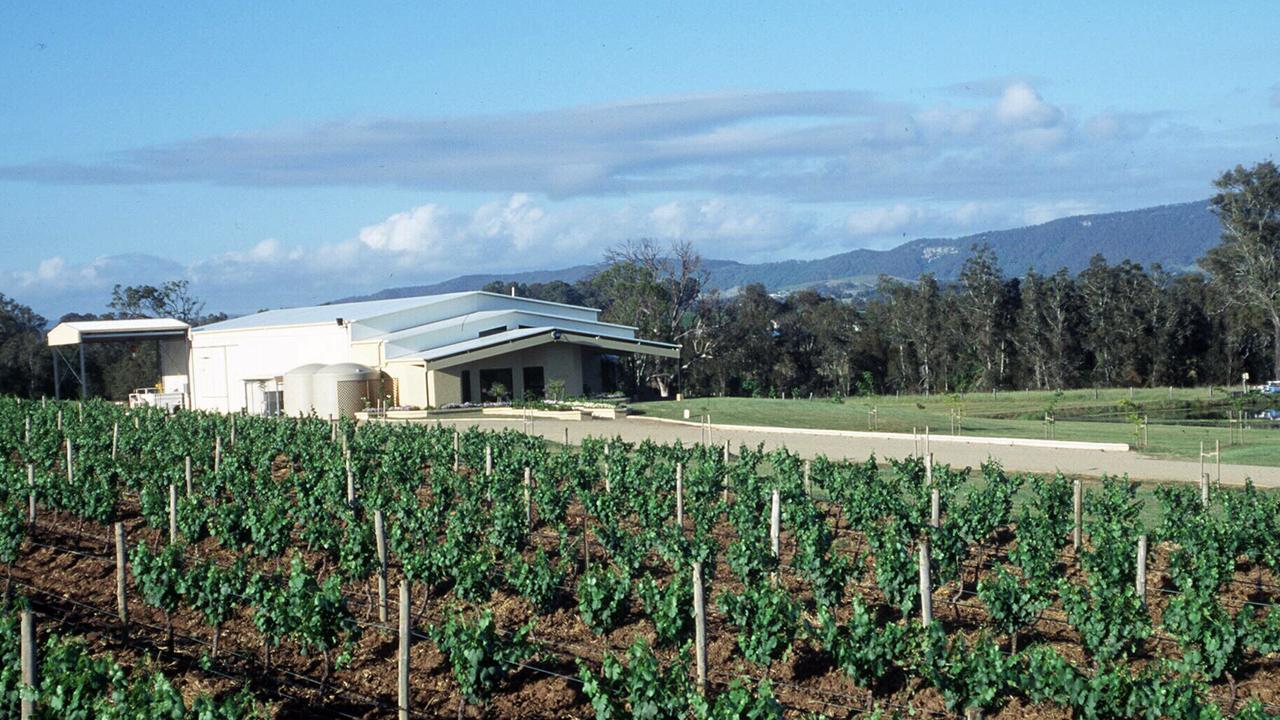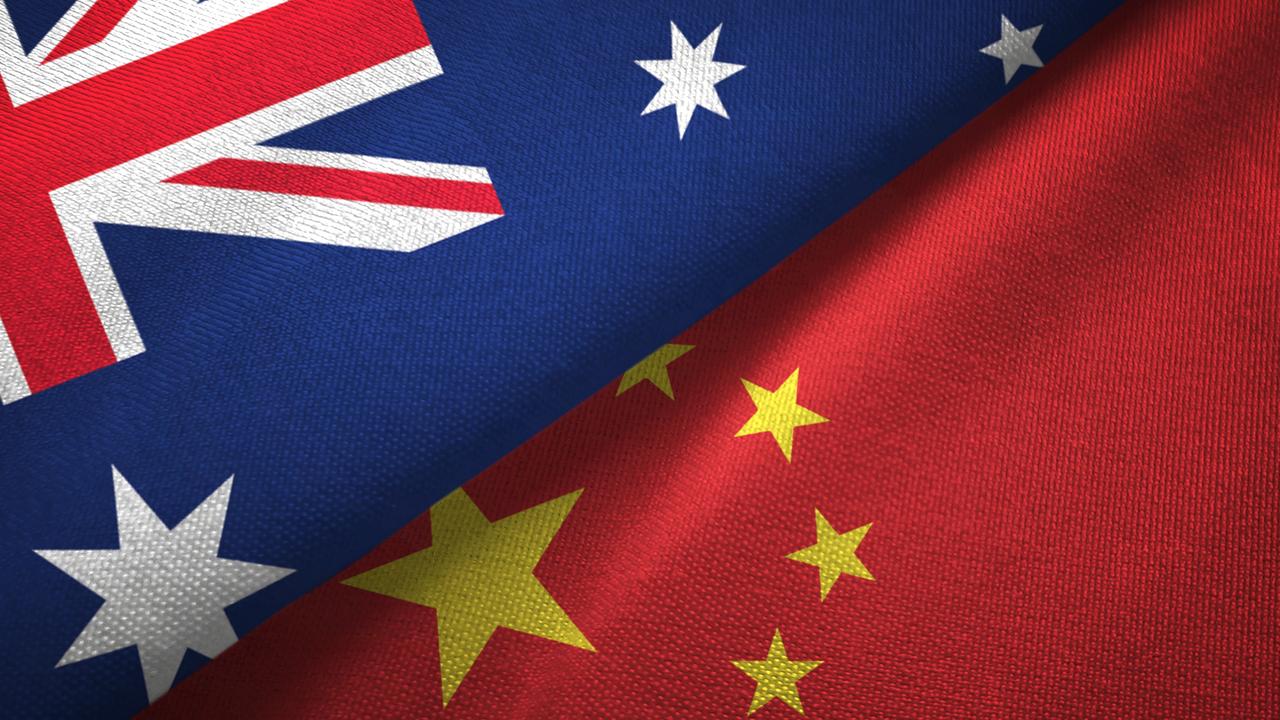The 41 Chinese-owned wineries on boycott hit list
Aussies are vowing to shun dozens of Chinese-owned vineyards in an act of revenge against Beijing. But how much do we really know?
Wine lovers across the nation are reeling after a viral list revealed that dozens of Australian vineyards were actually owned by Chinese companies.
The list, shared by the Vino e Amigos Facebook page, has sparked boycott calls as Beijing’s brutal trade war against Australia continues to escalate, and has also kicked off an uncomfortable national conversation about foreign ownership.
But how much do we really know about what’s going on in vineyards across the country?
When contacted by news.com.au, Wine Australia – a government agency dedicated to the industry – confirmed it did not record ownership of wineries according to nationality.
RELATED: Push to boycott list of Chinese-owned wineries

The Foreign Investment Review Board also does not specifically include vineyards and wineries in its latest Register of Foreign Ownership of Agricultural Land, although it confirms the estimated proportion of agricultural land with a level of foreign interest at June 30, 2019 was 13.8 per cent.
The lack of official data means it’s next to impossible to discover just how many are really in foreign hands, but a string of high-profile sales to major Chinese corporations in recent years provides a glimpse into the extent of the issue.
SOUTH AUSTRALIA
The majority of the nation’s Chinese-owned vineyards are located in South Australia, with the Barossa Valley proving particularly popular with Chinese buyers.
In fact, scores of lucrative deals have been struck in the region over the past decade, resulting in estimates that around 10 per cent of the area was now owned by Chinese nationals.
In 2010, 1847 Wine was snapped up by businessman Arthur Wang, who also picked up Chateau Yaldara in 2014 for $15.5 million.
Located near Lyndoch, Château Yaldara is one of the best-known wineries on the list, and was founded in 1947 by Hermann Thumm.
Auswan Creek is also owned by Chinese company Swan Wine Group, while Max’s Vineyard was bought by firm Jia Yuan Hua Wines for more than $3 million in 2017.
RELATED: China bans yet another Aussie product

In 2018, Cimicky Wines and Burge Family Winemakers were both sold to Chinese parties.
Interestingly, Auswan Creek was one of around 50 wineries to be singled out by the Chinese government when the tariff hikes were announced, but it was slapped with the lowest hike out of the group.
Another big name on the list is Kilikanoon in the Clare Valley, which made headlines in late 2017 when an 80 per cent stake in the company was sold to Changyu Pioneer Wine Co, China’s largest wine company.
WA
Over in WA, a Chinese company took over a majority stake in popular Ferngrove Wines in 2011, while Margaret River’s Woodside Valley Estate and the Perth Hills Western Range were acquired by Palinda Wines – owned by Chinese businessman Jacky Wong – in 2012.
TASMANIA
Nocton Vineyard, located in the Coal Valley, was established by Chinese owners in 1999 and is one of the Tasmania’s biggest vineyards.
NSW
In NSW’s famed Hunter Valley, Chinese investors purchased Allandale Winery in 2016, while in 2011 the 16-hectare Capercaillie Wine was sold to Chinese buyers after being listed for $1.89 million.
VICTORIA
Most of the Chinese-owned vineyards and wineries in Victoria are located in the Yarra Valley, with the Hillcrest Winery purchased for a rumoured $4.6 million in 2018.
Wild Cattle Creek is believed to have sold for $8.5 million while Badger’s Brook also sold the same year for an unknown amount, with all three properties going to Chinese parties.
BOYCOTT BACKLASH
The explosive list prompted many social media users to vow to avoid Chinese-owned wines in future as a result of the trade war.
“I’ve (taken a) screen shot (of) the list and will steer clear. Sorry to the Aussie workers at these wineries,” one Facebook user wrote, while another said: “We will not be purchasing from any Chinese owned wineries until all our wine producers have fair and transparent access to Chinese markets without politically motivated tariffs”.
However, while the list has drawn attention to the number of vineyards and wineries owned by Chinese interests, a far larger slice of the industry in Australia is actually owned by parties from other countries, including France and the US.
And there are hopes that the tariffs will be temporary – and that the industry can pick up where it left off with China soon.
RELATED: What’s next in China’s firing line

Stephen Strachan, the director of Langley and Co, a firm involved with wine industry acquisitions, told news.com.au China had traditionally been very important to the industry, and would be again.
“China is still very important and everyone is keen to resolve the issue,” he said.
“Nobody could have foreseen this and so many people in the wine industry have such strong relationships with Chinese buyers and customers and all those people see a future with China.
“Chinese people clearly like drinking our wine, which is a positive, and the tariffs put in place on Australian sales ironically are hurting Chinese companies at the same time.”
‘EXTREMELY DISAPPOINTING’
In a statement, government industry body Wine Australia said the tariffs imposed by China were a devastating blow.
“The Australian wine sector has made a long-term commitment to building the market for Australian wine in China and building close ties with the China wine trade and consumers,” the statement reads.
“The November announcement by the Chinese Ministry of Commerce of temporary tariffs of between 107.1 per cent and 212.1 per cent on bottled Australian wine is extremely disappointing.
“The announcement will significantly impact Australian grape and wine businesses.”
Editor's note: After publication news.com.au was contacted by a representative of Swan Wine Group. news.com.au accepts that the owners of the Group, including the Auswan Creek brand, are naturalised Australians who have surrendered their Chinese citizenship and Auswan Creek is, consequently, not owned by the Chinese.



